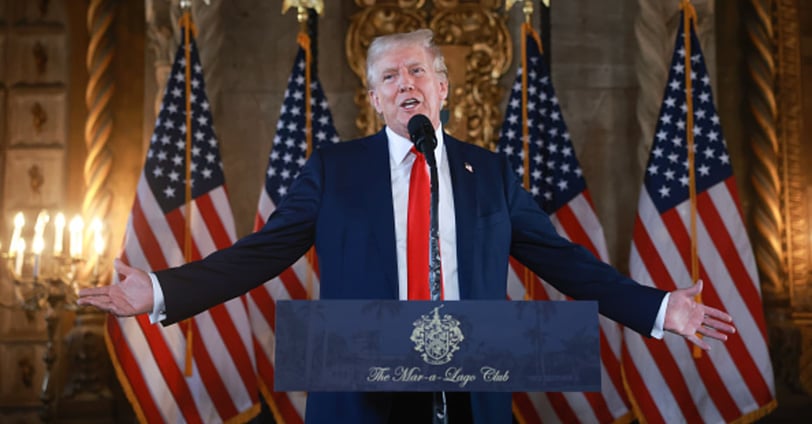How Trump’s Victory Opens New Opportunities for Indian Businesses in the U.S. Market
The recent election results have created quite a buzz around the world, especially regarding the implications of Donald Trump’s victory for various countries. For Indian businesses, this political shift could bring exciting new opportunities in the U.S. market. Let’s explore how Indian entrepreneurs can take advantage of this situation and grow their businesses.
Astitva Dubey
11/5/20242 min read


Understanding the Landscape
With Trump back in office, we can expect a focus on “America First” policies. This means that American jobs and businesses will be prioritized. However, this approach can also create openings for Indian companies that are ready to adapt and collaborate. By understanding the U.S. market and its unique needs, Indian businesses can position themselves strategically to benefit from these changing dynamics.
Opportunities in Technology
One of the most promising areas for Indian businesses is technology. The U.S. has always been a hub for innovation, and with the increasing demand for tech solutions, Indian companies can fill the gap. Sectors like software development, IT services, and cybersecurity are where Indian firms have already made significant strides.
With the likelihood of Trump’s administration focusing on technological advancements, Indian tech companies can offer their expertise to U.S. firms looking to enhance their operations. Collaborations in these areas can lead to mutual growth and success, opening doors for Indian startups to expand their reach.
Manufacturing and Supply Chains
Another sector that holds great potential is manufacturing. Ongoing global supply chain disruptions have pushed many U.S. companies to look for diverse suppliers. Indian manufacturers can step in to provide quality products at competitive prices.
If Indian companies can assure reliability and efficiency, they could become preferred suppliers for U.S. businesses. This not only creates jobs in India but also strengthens bilateral trade relations. By focusing on sustainability and ethical manufacturing practices, Indian products can become even more appealing in the U.S. market.
Healthcare and Pharmaceuticals
The COVID-19 pandemic has shown us just how vital healthcare and pharmaceuticals are. India is often referred to as the “pharmacy of the world,” supplying affordable medicines globally. With Trump likely to emphasize healthcare reforms, Indian pharmaceutical companies can explore partnerships with U.S. firms.
These collaborations can lead to joint ventures in research and development, especially for vaccines and treatments. Tapping into the U.S. healthcare market allows Indian companies to boost their revenues while contributing to global health solutions.
E-Commerce and Digital Services
The rise of e-commerce has transformed the way businesses operate. With more consumers shopping online, Indian businesses have a great opportunity to capitalize on this trend. E-commerce platforms that connect Indian artisans and small businesses with U.S. consumers can thrive in this environment.
Additionally, digital services like marketing, content creation, and online consulting are in high demand. Indian entrepreneurs with skills in these areas can offer their services to U.S. companies looking to enhance their online presence.
Preparing for Success
To take advantage of these opportunities, Indian businesses must be proactive. Understanding U.S. regulations, market trends, and consumer preferences is crucial. Networking with industry experts and participating in trade shows can help Indian entrepreneurs build valuable connections.
Investing in quality and maintaining high standards is essential. U.S. consumers value quality, and Indian businesses must meet or exceed these expectations to succeed in a competitive market.
Conclusion
In conclusion, Donald Trump’s victory presents a unique chance for Indian businesses to explore new avenues in the U.S. market. By focusing on technology, manufacturing, healthcare, and e-commerce, Indian entrepreneurs can tap into growing demand and establish successful ventures.
The key to success lies in adaptability, quality, and a willingness to collaborate. With the right strategies in place, Indian businesses can turn this political change into a golden opportunity, paving the way for growth and prosperity in the years to come.
As a second-year business student, I find it fascinating to see how global politics can influence local opportunities. This is an exciting time for Indian entrepreneurs, and I look forward to witnessing how they navigate these changes and seize new possibilities in the U.S. market.
